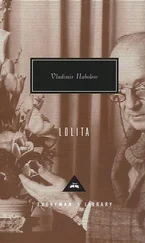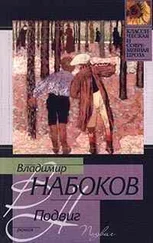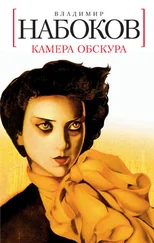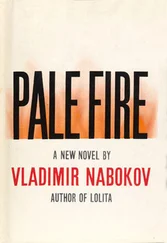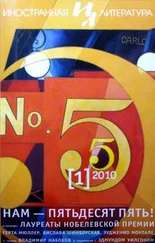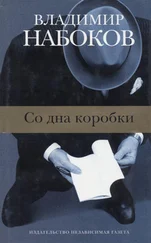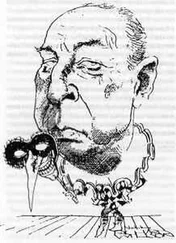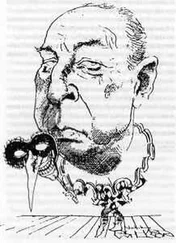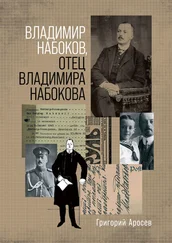Владимир Набоков - Ada, or Ador - A Family Chronicle
Здесь есть возможность читать онлайн «Владимир Набоков - Ada, or Ador - A Family Chronicle» весь текст электронной книги совершенно бесплатно (целиком полную версию без сокращений). В некоторых случаях можно слушать аудио, скачать через торрент в формате fb2 и присутствует краткое содержание. Жанр: Классическая проза, Современные любовные романы, на английском языке. Описание произведения, (предисловие) а так же отзывы посетителей доступны на портале библиотеки ЛибКат.
- Название:Ada, or Ador: A Family Chronicle
- Автор:
- Жанр:
- Год:неизвестен
- ISBN:нет данных
- Рейтинг книги:3 / 5. Голосов: 1
-
Избранное:Добавить в избранное
- Отзывы:
-
Ваша оценка:
- 60
- 1
- 2
- 3
- 4
- 5
Ada, or Ador: A Family Chronicle: краткое содержание, описание и аннотация
Предлагаем к чтению аннотацию, описание, краткое содержание или предисловие (зависит от того, что написал сам автор книги «Ada, or Ador: A Family Chronicle»). Если вы не нашли необходимую информацию о книге — напишите в комментариях, мы постараемся отыскать её.
Ada, or Ador: A Family Chronicle — читать онлайн бесплатно полную книгу (весь текст) целиком
Ниже представлен текст книги, разбитый по страницам. Система сохранения места последней прочитанной страницы, позволяет с удобством читать онлайн бесплатно книгу «Ada, or Ador: A Family Chronicle», без необходимости каждый раз заново искать на чём Вы остановились. Поставьте закладку, и сможете в любой момент перейти на страницу, на которой закончили чтение.
Интервал:
Закладка:
Poor Aqua, whose fancies were apt to fall for all the fangles of cranks and Christians, envisaged vividly a minor hymnist’s paradise, a future America of alabaster buildings one hundred stories high, resembling a beautiful furniture store crammed with tall white-washed wardrobes and shorter fridges; she saw giant flying sharks with lateral eyes taking barely one night to carry pilgrims through black ether across an entire continent from dark to shining sea, before booming back to Seattle or Wark. She heard magic-music boxes talking and singing, drowning the terror of thought, uplifting the lift girl, riding down with the miner, praising beauty and godliness, the Virgin and Venus in the dwellings of the lonely and the poor. The unmentionable magnetic power denounced by evil lawmakers in this our shabby country — oh, everywhere, in Estoty and Canady, in ‘German’ Mark Kennensie, as well as in ‘Swedish’ Manitobogan, in the workshop of the red-shirted Yukonets as well as in the kitchen of the red-kerchiefed Lyaskanka, and in ‘French’ Estoty, from Bras d’Or to Ladore — and very soon throughout both our Americas, and all over the other stunned continents — was used on Terra as freely as water and air, as bibles and brooms. Two or three centuries earlier she might have been just another consumable witch.
In her erratic student years Aqua had left fashionable Brown Hill College, founded by one of her less reputable ancestors, to participate (as was also fashionable) in some Social Improvement project or another in the Severnïya Territorii. She organized with Milton Abraham’s invaluable help a Phree Pharmacy in Belokonsk, and fell grievously in love there with a married man, who after one summer of parvenu passion dispensed to her in his Camping Ford garçonnière preferred to give her up rather than run the risk of endangering his social situation in a philistine town where businessmen played ‘golf’ on Sundays and belonged to ‘lodges.’ The dreadful sickness, roughly diagnosed in her case, and in that of other unfortunate people, as an ‘extreme form of mystical mania combined with existalienation’ (otherwise plain madness), crept over her by degrees, with intervals of ecstatic peace, with skipped areas of precarious sanity, with sudden dreams of eternity-certainty, which grew ever rarer and briefer.
After her death in 1883, Van computed that in the course of thirteen years, counting every presumed moment of presence, counting the dismal visits to her various hospitals, as well as her sudden tumultuous appearances in the middle of the night (wrestling with her husband or the frail but agile English governess all the way upstairs, wildly welcomed by the old appenzeller — and finally making the nursery, wigless, slipperless, with bloodied fingernails), he had actually seen her, or been near her, all in all, for a length of time hardly exceeding that of human gestation.
The rosy remoteness of Terra was soon veiled for her by direful mists. Her disintegration went down a shaft of phases, every one more racking than the last; for the human brain can become the best torture house of all those it has invented, established and used in millions of years, in millions of lands, on millions of howling creatures.
She developed a morbid sensitivity to the language of tap water — which echoes sometimes (much as the bloodstream does predormitarily) a fragment of human speech lingering in one’s ears while one washes one’s hands after cocktails with strangers. Upon first noticing this immediate, sustained, and in her case rather eager and mocking but really quite harmless replay of this or that recent discourse, she felt tickled at the thought that she, poor Aqua, had accidentally hit upon such a simple method of recording and transmitting speech, while technologists (the so-called Eggheads) all over the world were trying to make publicly utile and commercially rewarding the extremely elaborate and still very expensive, hydrodynamic telephones and other miserable gadgets that were to replace those that had gone k chertyam sobach’im (Russian ‘to the devil’) with the banning of an unmentionable ‘lammer.’ Soon, however, the rhythmically perfect, but verbally rather blurred volubility of faucets began to acquire too much pertinent sense. The purity of the running water’s enunciation grew in proportion to the nuisance it made of itself. It spoke soon after she had listened, or been exposed, to somebody talking — not necessarily to her — forcibly and expressively, a person with a rapid characteristic voice, and very individual or very foreign phrasal intonations, some compulsive narrator’s patter at a horrible party, or a liquid soliloquy in a tedious play, or Van’s lovely voice, or a bit of poetry heard at a lecture, my lad, my pretty, my love, take pity, but especially the more fluid and flou Italian verse, for instance that ditty recited between knee-knocking and palpebra-lifting, by a half-Russian, half-dotty old doctor, doc, toc, ditty, dotty, ballatetta, deboletta… tu, voce sbigottita… spigotty e diavoletta… de lo cor dolente… con ballatetta va… va… della strutta, destruttamente… mente… mente… stop that record, or the guide will go on demonstrating as he did this very morning in Florence a silly pillar commemorating, he said, the ‘elmo’ that broke into leaf when they carried stone-heavy-dead St Zeus by it through the gradual, gradual shade; or the Arlington harridan talking incessantly to her silent husband as the vineyards sped by, and even in the tunnel (they can’t do this to you, you tell them, Jack Black, you just tell them…). Bathwater (or shower) was too much of a Caliban to speak distinctly — or perhaps was too brutally anxious to emit the hot torrent and get rid of the infernal ardor — to bother about small talk; but the burbly flowlets grew more and more ambitious and odious, and when at her first ‘home’ she heard one of the most hateful of the visiting doctors (the Cavalcanti quoter) garrulously pour hateful instructions in Russian-lapped German into her hateful bidet, she decided to stop turning on tap water altogether.
But that phase elapsed too. Other excruciations replaced her namesake’s loquacious quells so completely that when, during a lucid interval, she happened to open with her weak little hand a lavabo cock for a drink of water, the tepid lymph replied in its own lingo, without a trace of trickery or mimicry: Finito! It was now the forming of soft black pits (yamï, yamishchi) in her mind, between the dimming sculptures of thought and recollection, that tormented her phenomenally; mental panic and physical pain joined black-ruby hands, one making her pray for sanity, the other, plead for death. Man-made objects lost their significance or grew monstrous connotations; clothes hangers were really the shoulders of decapitated Tellurians, the folds of a blanket she had kicked off her bed looked back at her mournfully with a stye on one drooping eyelid and dreary reproof in the limp twist of a livid lip. The effort to comprehend the information conveyed somehow to people of genius by the hands of a timepiece, or piece of time, became as hopeless as trying to make out the sign language of a secret society or the Chinese chant of that young student with a non-Chinese guitar whom she had known at the time she or her sister had given birth to a mauve baby. But her madness, the majesty of her madness, still retained a mad queen’s pathetic coquetry: ‘You know, Doctor, I think I’ll need glasses soon, I don’t know’ (lofty laugh), ‘I just can’t make out what my wrist watch says… For heaven’s sake, tell me what it says! Ah! Half-past for — for what? Never mind, never mind, "never" and "mind" are twins, I have a twin sister and a twin son. I know you want to examine my pudendron, the Hairy Alpine Rose in her album, collected ten years ago’ (showing her ten fingers gleefully, proudly, ten is ten!).
Читать дальшеИнтервал:
Закладка:
Похожие книги на «Ada, or Ador: A Family Chronicle»
Представляем Вашему вниманию похожие книги на «Ada, or Ador: A Family Chronicle» списком для выбора. Мы отобрали схожую по названию и смыслу литературу в надежде предоставить читателям больше вариантов отыскать новые, интересные, ещё непрочитанные произведения.
Обсуждение, отзывы о книге «Ada, or Ador: A Family Chronicle» и просто собственные мнения читателей. Оставьте ваши комментарии, напишите, что Вы думаете о произведении, его смысле или главных героях. Укажите что конкретно понравилось, а что нет, и почему Вы так считаете.

